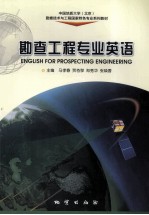图书介绍
勘查工程专业英语2025|PDF|Epub|mobi|kindle电子书版本百度云盘下载

- 马孝春等主编 著
- 出版社: 北京:地质出版社
- ISBN:9787116068513
- 出版时间:2010
- 标注页数:216页
- 文件大小:38MB
- 文件页数:227页
- 主题词:地质勘探-英语-教材
PDF下载
下载说明
勘查工程专业英语PDF格式电子书版下载
下载的文件为RAR压缩包。需要使用解压软件进行解压得到PDF格式图书。建议使用BT下载工具Free Download Manager进行下载,简称FDM(免费,没有广告,支持多平台)。本站资源全部打包为BT种子。所以需要使用专业的BT下载软件进行下载。如BitComet qBittorrent uTorrent等BT下载工具。迅雷目前由于本站不是热门资源。不推荐使用!后期资源热门了。安装了迅雷也可以迅雷进行下载!
(文件页数 要大于 标注页数,上中下等多册电子书除外)
注意:本站所有压缩包均有解压码: 点击下载压缩包解压工具
图书目录
Unit 1 Chemical and Physical Properties of Rocks1
1.1 Composition of Rocks1
1.2 Geological Classification of Rocks3
Unit 2 Soil Composition and Classification9
2.1 Soil Composition9
2.1.1 Weight-volume Relationships10
2.1.2 Relative Density11
2.1.3 Particle Size12
2.1.4 Clays12
2.1.5 Plasticity and the Atterberg Limits13
2.2 Soil Classification14
Unit 3 Influence of Groundwater to Engineering19
3.1 Pavements21
3.2 Slopes22
Unit 4 Site Investigation26
4.1 Background Literature Search27
4.2 Field Reconnaissance28
4.3 Subsurface Exploration and Sampling28
4.4 Exploratory Borings28
4.5 Soil Sampling30
4.6 Groundwater Monitoring30
4.7 Exploratory Trenches31
Unit 5 Laboratory Testing of Soils35
5.1 Introduction35
5.2 Common Laboratory Tests36
5.2.1 Index Tests37
5.2.2 Oedometer38
5.2.3 Shear Strength Tests39
5.2.4 Permeability43
Unit 6 In-situ Testing47
6.1 Standard Penetration Test(SPT)47
6.2 Cone Penetration Test(CPT)49
6.3 Vane Shear Test(VST)51
6.4 Pressuremeter Test(PMT)52
6.5 Dilatometer Test(DMT)52
6.6 Becker Penetration Test53
6.7 Comparison of In-situ Test Methods54
Unit 7 Drilling Technology58
7.1 Classification of Types of Drilling58
7.2 The Connection to the Bit58
7.2.1 Transmission of Power58
7.2.2 Control of the Bit58
7.2.3 Conduct of Fluid59
7.2.4 Conduct of Cuttings59
7.2.5 Drill String Flexibility60
7.2.6 Tasks Performed Down the Hole60
7.2.7 The Drill String Gives the Clues60
7.3 Pipes and Pipe Threads61
7.3.1 Tubing for Drill Pipe62
7.3.2 Tubing for Casing62
7.3.3 Threads63
7.3.4 Rotary Tool Joints63
7.3.5 Drill Pipe Failure64
7.3.6 Correct Make-up Torque64
7.3.7 Caring for Pipes and Threads65
7.4 Cable Tool and Hydraulic Drilling65
7.4.1 Features of Cable Tool Percussion65
7.4.2 Cable Tool Techniques68
7.4.3 Other Cable Types68
7.4.4 Hydraulic Types ofDrilling69
7.4.5 Suitability of Hydraulic Drilling70
7.4.6 Essential Cable Tool Drill String Components71
7.5 Auger Drilling71
7.5.1 Types of Auger Drilling71
7.5.2 Applications of Auger Drills72
7.6 Rotary and Down-hole Hammer Drilling74
7.6.1 What is Rotary Drilling?74
7.6.2 Forms of Rotary Drive75
7.6.3 Methods of Feeding the Bit75
7.6.4 Rotary Down-hole Hammer Drilling77
7.6.5 Rotary Fluid Circulation77
7.6.6 Reverse Circulation78
7.6.7 Types and Features of Rotary Rigs79
7.7 Slim-hole Rotary and Diamond Drilling79
7.7.1 What is Meant by Slim-hole Rotary Drilling?79
7.7.2 Varieties of Slim-hole Core Drilling80
7.7.3 Diamond Drill Rigs80
7.7.4 Other Slim-hole Types of Drilling81
7.8 Drill Rig Parameters82
Unit 8 Shallow Foundations89
8.1 Function of Foundations89
8.1.1 Foundation Engineering89
8.1.2 Foundation Classification and Selection91
8.1.3 General Requirements92
8.1.4 Additional Considerations93
8.2 Types of Shallow Foundations94
8.2.1 Introduction94
8.2.2 Strip Foundations95
8.2.3 Rafts97
Unit 9 Deep Foundations99
9.1 Pile Foundations99
9.1.1 Steel Piles100
9.1.2 Concrete Piles101
9.1.3 Negative Skin Frietion101
9.1.4 Determination of Negative Skin Friction102
9.1.5 Pile Groups103
9.1.6 Pile Spacing103
9.1.7 Efficiency104
9.2 Drilled Shaft and Caisson Foundations105
9.2.1 Types of Drilled Shafts106
9.2.2 Construction Procedures107
9.2.3 Types of Caissons109
Unit 10 Soil Improvements112
10.1 Methods of Soil Improvements112
10.1.1 General Principles of Compaction112
10.1.2 Vibroflotation114
10.1.3 Sand Drains115
10.1.4 Lime Stabilization116
10.1.5 Cement Stabilization118
10.1.6 Fly Ash Stabilization119
10.1.7 Stone Columns119
10.1.8 Sand Compaction Piles120
10.1.9 Dynamic Compaction121
10.2 Soil Stabilization121
Unit 11 Grouting Engineering128
11.1 Definition128
11.2 Conceptual Design128
11.3 Uses of Grouting129
11.4 Types of Grouting129
11.5 Assessment of Groutability131
11.6 Impediments to Effective Grouting131
11.6.1 Environmental Impact Assessment132
11.6.2 Spoil and Waste Disposal133
11.6.3 Site Health and Safety134
Unit 12 Analyses of Bearing Capacity and Settlement of Structures136
12.1 Bearing Capacity Failures136
12.2 Settlement of Structures141
12.2.1 Introduction141
12.2.2 Allowable Settlement143
12.2.3 Collapsible Soil146
Unit 13 Retaining Structures150
13.1 Soil Nailing150
13.2 Landslides155
Unit 14 Petroleum Drilling162
14.1 Rotary Drilling163
14.2 Circulation Systems165
14.2.1 Direct Circulation166
14.2.2 Reverse Circulation167
14.3 Comparison of Mud and Air Drilling169
14.3.1 Advantages and Disadvantages169
14.3.2 Flow Characteristics170
Unit 15 Trenchless Engineering180
15.1 Horizontal Directional Drilling180
15.1.1 Overview180
15.1.2 Methods181
15.1.3 HDD Drilling Machines182
15.1.4 Fluid-assisted Boring183
15.1.5 Fluid Jet Boring184
15.1.6 Dry Boring185
15.1.7 Drill Pipes186
15.1.8 Drilling Fluids186
15.1.9 Tracking&Guidance Systems187
15.1.10 Ancillary Equipment189
15.1.11 Latest Developments189
15.1.12 Summary190
15.2 Pipe Jacking and Microtunnelling191
15.2.1 Overview191
15.2.2 Applications192
15.2.3 Excavation and Spoil Removal in Pipe Jacking192
15.2.4 Excavation and Spoil Removal in Microtunnelling193
15.2.5 Excavation and Spoil Removal in Pilot Auger Microtunnelling194
15.2.6 Jacking Frames194
15.2.7 Interjacks195
15.2.8 Ground Conditions195
15.2.9 Planning195
15.2.10 Pipes196
15.2.11 Shafts197
15.2.12 Summary198
附录A Introduction to CUGB203
附录B 希腊字母215
附录C 符号的读法215
参考文献216
热门推荐
- 3079958.html
- 2986519.html
- 3594653.html
- 1017922.html
- 2612089.html
- 3709544.html
- 2971703.html
- 1677311.html
- 3436874.html
- 3135235.html
- http://www.ickdjs.cc/book_2583884.html
- http://www.ickdjs.cc/book_505452.html
- http://www.ickdjs.cc/book_2232434.html
- http://www.ickdjs.cc/book_3338538.html
- http://www.ickdjs.cc/book_1105979.html
- http://www.ickdjs.cc/book_3490056.html
- http://www.ickdjs.cc/book_348195.html
- http://www.ickdjs.cc/book_3064514.html
- http://www.ickdjs.cc/book_173599.html
- http://www.ickdjs.cc/book_479479.html